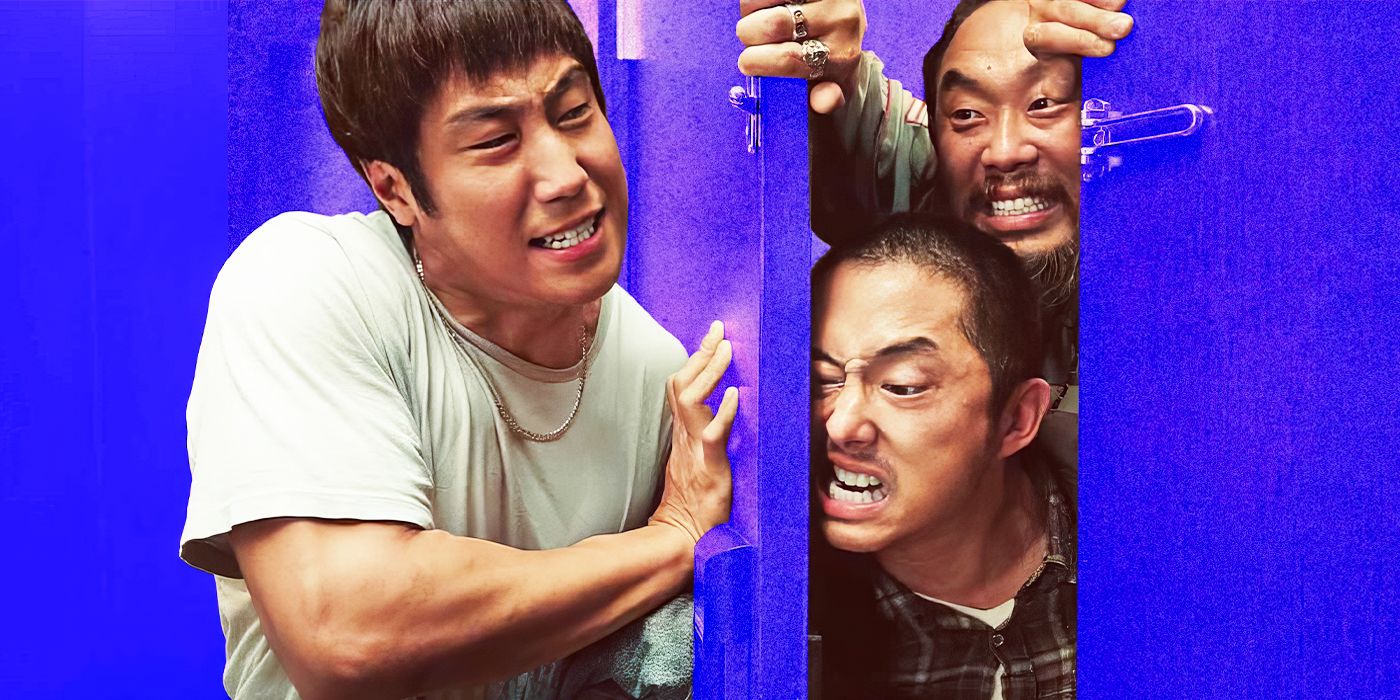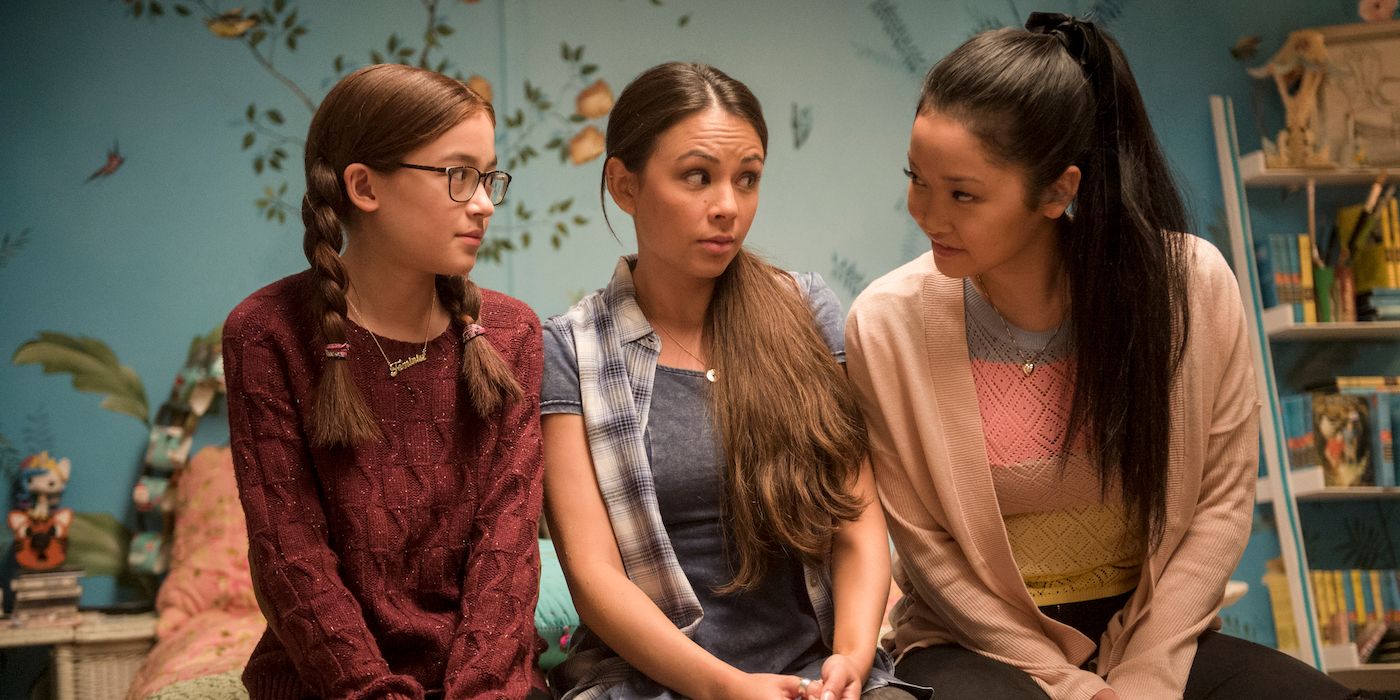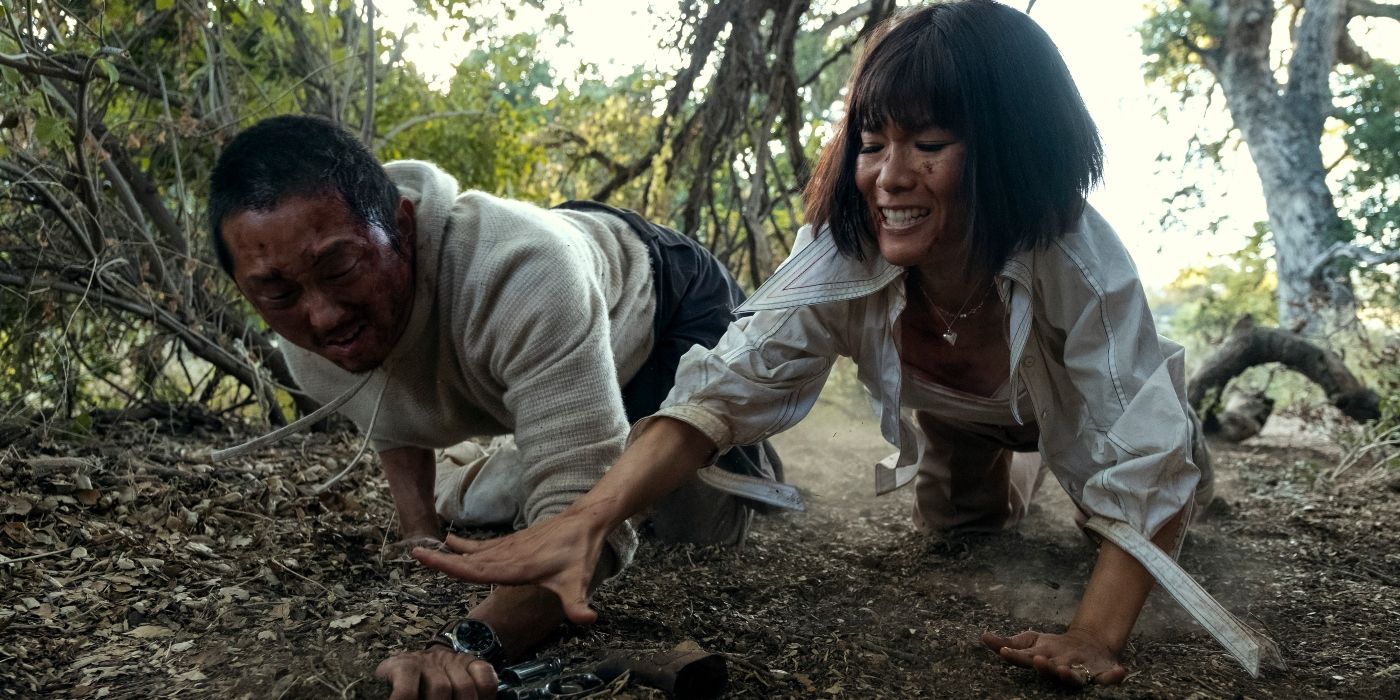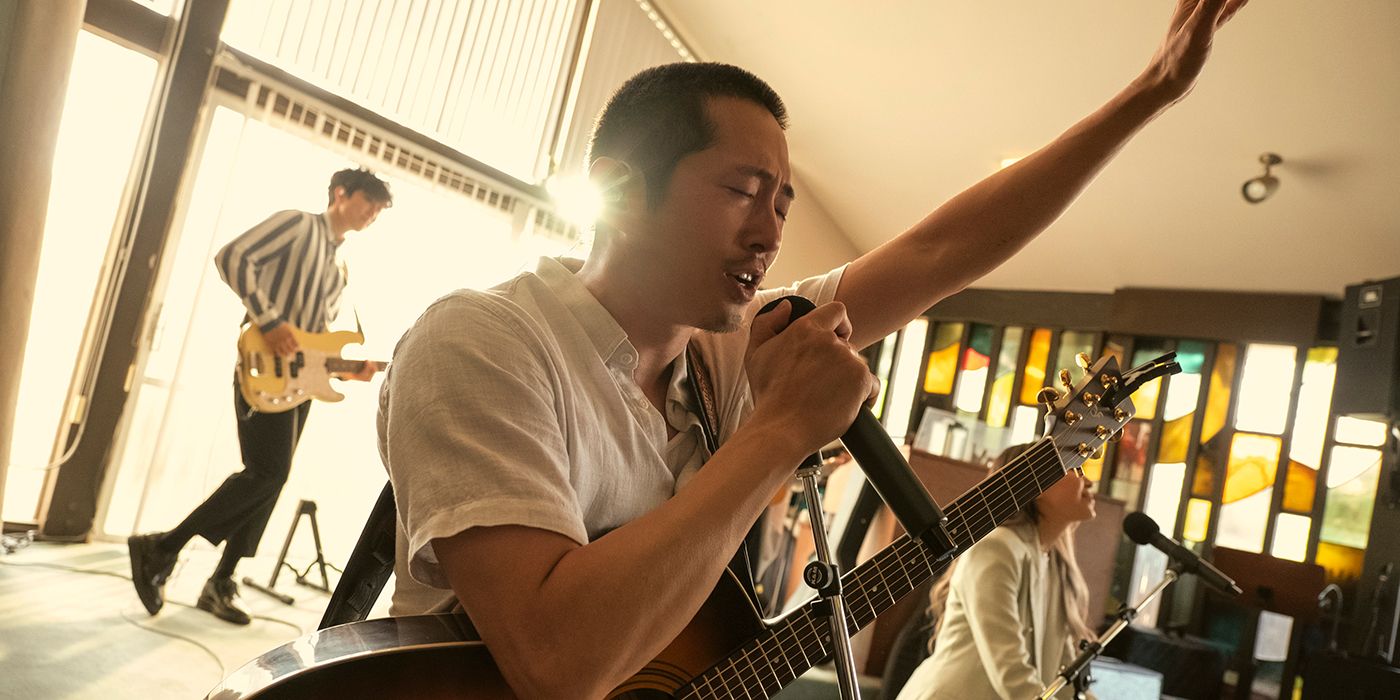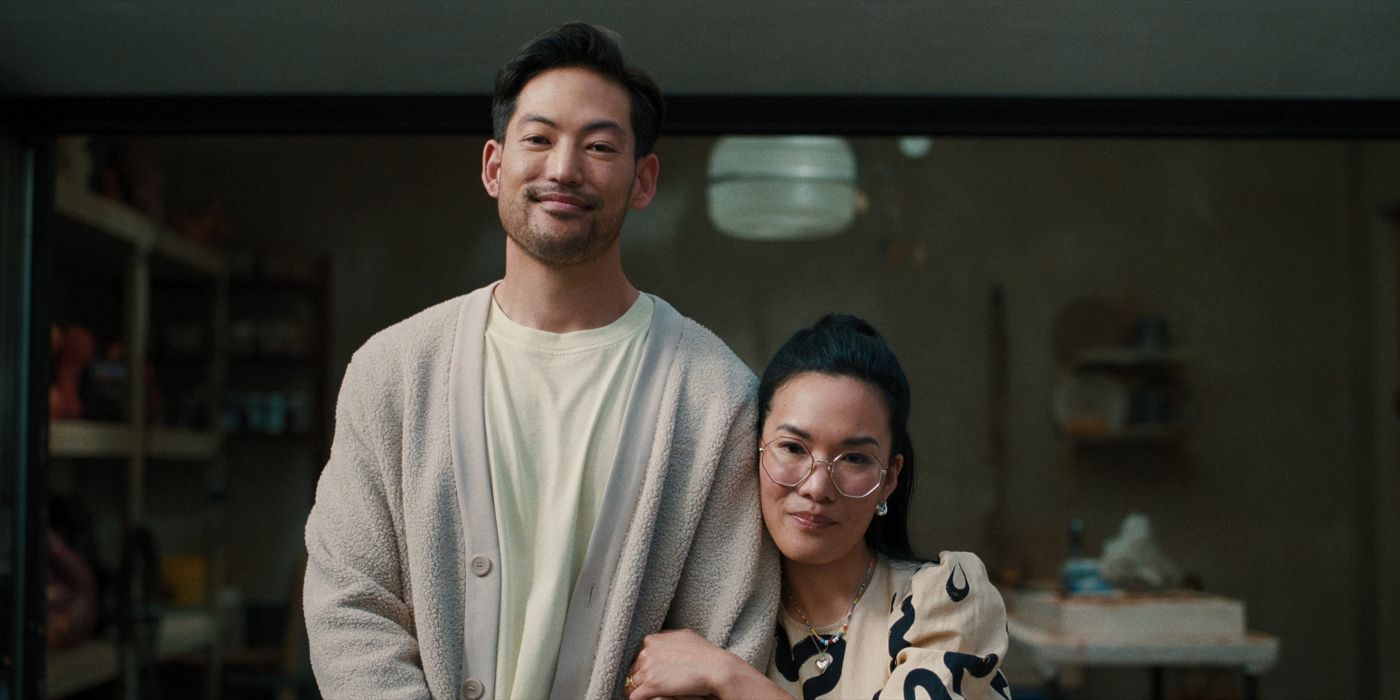Netflix's Beef is a dark comedy about two feuding Asian Americans, Amy (Ali Wong) and Danny (Steven Yeun). To say that Beef is a masterwork of film and television would be an understatement. Full of small but profound nuances, Beef tells a well-rounded story that perfectly exemplifies the phrase "art imitates life." In large part, what makes Beef so powerful is its full awareness of its identity and the identity of its characters. The ethnic culture of its protagonists is not the most crucial piece of the plot, but it is an integral part of Beef's central plotline that's weaved in harmoniously by show writer Lee Sung Jin.
For generations, the film industry whitewashed characters of Asian descent by casting white actors in their place in films like the critically-panned Aloha, A Mighty Heart, and most infamously, Breakfast at Tiffany's (which was highly problematic for reasons other than whitewashing). These characters are, at best, misrepresentations of real people or, at worst, offensive characters that do little but perpetuate stereotypes, negating or completely obscuring real-life experiences.
The Industry Is Making Changes, But It Is Still Inadequate Sometimes
The film business has made considerable strides in the acknowledgment of Asian or Asian-American stories but sometimes still gets casting wrong. In the case of beloved films like To All the Boys I Loved Before, a series whose plotline also vitally touches on its characters' Korean culture, yet none of the movies' Asian-American leads (Lana Condor, Janel Parrish, and Anna Cathcart, respectively) are of Korean descent. Despite how beautifully its story is told, the miscasting is a notable blemish when we still repeatedly see a failure to cast ethnically-appropriate actors in roles where its characters' ethnic identity is central to the plot.
That's where Beef charges in with the same furor as its deuteragonist: It is a story that represents its characters with respect and the stories the people that inspire it come from. To go a step further, Beef nearly got its casting perfect. Nearly. Joseph Lee, who portrays George, is not Japanese but Korean, and while Lee does an amazing job as George, it does mean that Beef got close to achieving what few shows and films have been able to achieve. Still Beef has gained a lot more ground than most television shows or movies even attempt to.
How the Actors Got it Right
Danny and Amy share a common experience in coming from hard-working Asian immigrant backgrounds. This experience is most apparent in Amy, who is frequently at odds with her husband, George, because they grew up with different levels of wealth. It is mostly expressed in Amy's work ethic, which mirrors Danny's. Although they have come to live in opposing circumstances (Amy is very comfortable, and Danny is not), their ideas of financial success and their actions to achieve that success are similar. However, contrary to common misconception, this work ethic is not a result of their families similarly being Asian, it's a result of how their families and peers treated them during childhood. What Beef does well is give visibility to the fact that each of these characters' ancestries come from different countries, showing how that makes them different.
Church and fellowship play a strong role in Danny's storyline. For anyone that has ever been to an evangelical church, the Korean evangelical church Danny attends is one of the most accurate examples ever portrayed on television of any church of its kind. For the viewers that grew up in this kind of church, the characters thrust into the story, like Edwin (Justin H. Min), and his wife, Veronica (Alyssa Gihee Kim), Danny's ex-girlfriend, are very realistic. Min, in particular, gives a beautiful, complex performance as Danny's righteous rival frenemy who wants success by any means necessary — virtuous or not. So while his sermons are sprinkled with morality, his actions behind the scenes contradict his service. But his purpose in this show and the purpose of the show goes even deeper than that.
At moments throughout Danny's time in church, he and even his nefarious cousin Isaac (David Choe) muse over the experience of growing up Korean. Danny cries as the church band plays worship music in a particularly moving scene that would earn Yuen an Emmy if this were a perfect world. Danny is emotional, wrought with stress from life's shortcomings, but it's easy to see that Danny is experiencing a sense of belonging for the first time in a long time in the church. He has that long-awaited cathartic cry that one only has when one feels safe enough.
Additionally, Danny finds comfort in his Korean heritage and has a sense of duty towards his culture, that's evident when he speaks to his younger brother, Paul (Young Mazino). While Paul is eager to date women outside his culture, Danny is sure he must marry a Korean woman.
Congruently, Ali Wong as Amy leans into her Vietnamese heritage when she expresses during therapy (another cathartic place) that her mother did not see birds until she moved to the United States, alluding to her mother's upbringing in Vietnam.
The Importance of All of This
Steven Yuen, Young Mazino, and David Choe are Korean-American. Ali Wong is Chinese and Vietnamese-American, and she jokes about it frequently. While this narrative could mean little to these actors, it can mean a lot to the viewers. In the same way that Danny finds refuge at the Korean church, do we, as people, find refuge and catharsis in seeing our narratives on screen. It doesn't have to mean that the whole story is about culture because human existence is not entirely reliant on culture, but we'd be remiss to say it isn't pertinent. Therefore, when we're given examples of writing that isn't acted out by someone from that background, it feels like the industry is simply portraying all Asian experiences as the same. Asians are not interchangeable and while many East Asian cultures are similar, they are not identical and can't be swapped around.
There is power in seeing someone of your unique background tell a story about that background; in that, we find strength, a road to righting past wrongs. As stated earlier, Beef didn't get its casting flawless, but it got pretty damn close. With such a strong storyline doing its characters and thereby, the cultures of the people it represents justice, you have to give credit where it's due.

